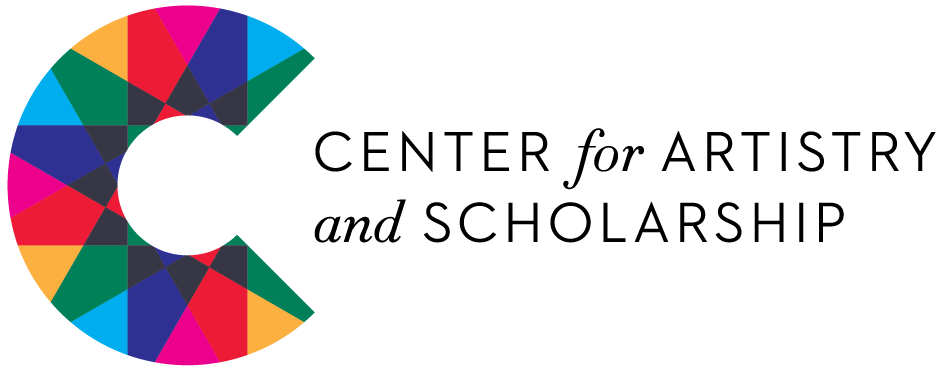Shannin Antonopoulo, PSi’s 2019-2020 International Fellow
In August, we welcomed 20 emerging school and nonprofit leaders to the August Intensive, an eight-day launch pad for the work they will undertake as part of the 2019-2020 Cohort of the Perrone-Sizer Institute for Creative Leadership (PSi).
The new Cohort included a member from beyond the Eastern Massachusetts area—way beyond, in fact—Johannesburg, South Africa. Shannin Antonopoulo, Project Manager at Artist Proof Studio in Johannesburg, attended as PSi’s International Fellow. In addition to the eight-day Intensive, Shannin will participate remotely over the course of the year and is hoping to rejoin the Cohort in person in June for final Capstone Project presentations. And Shannin has invited one of her Cohort, Sheldon Ryan Hitchens, to come to Johannesburg in November to share his STEAM (science, technology, engineering, arts, mathematics) expertise with her team.
PSi’s relationship with Artist Proof Studio (APS) goes way back. APS was founded in 1991 by Kim Berman and Nhlanhla Xaba. They envisioned APS as a pioneering community printmaking center reflecting the spirit of a healthy democracy and the ideals expressed in the new South African constitution. They explain, “As printmaking was seen as a democratic medium and a counterforce to the suspicion and division left from the apartheid years, it was considered to be a fitting approach to building a true egalitarian society. The country was on the brink of real change and in many ways, it was artists that led the rethinking of how the future could look for all South Africans.”
Kim had come to study at The School of the Museum of Fine Arts at Tufts University in Boston during apartheid and got involved with a printmaking studio in Cambridge before returning to take up her work in Johannesburg. In 2007, PSi Co-Director Linda Nathan, then headmaster at Boston Arts Academy (BAA), used her sabbatical to travel to Zimbabwe and South Africa. There she met Kim and Nhlanhla and fell in love with them and their work. This led to a long and fruitful collaboration, which has included inviting printmakers from APS to BAA and showing their work in Boston in collaboration with Mass College of Art. BAA’s Visual Arts Faculty Member and Gallery Director, Guy Michel Telemaque (PSi 2016-2017) has also made visits to APS, and APS’s Education Manager, Rene Mathibe, spent the fall semester with PSi in 2016.
Kim knew that Shannin was at the point in her own leadership journey where an experience like PSi would be particularly valuable and was excited to sponsor her participation. And we knew that PSi faculty and Shannin’s fellow Cohort members would have a lot to learn from her unique perspective.
The August Intensive is, well, intense for everyone. And more so for Shannin who had to navigate a different culture, ask questions about a shared history that U.S. participants take for granted, and, surprisingly, parse language. “The US accent is hard to pick up, and you use a lot of acronyms!” she told us. We had taken English as a shared language for granted, just one of our many learnings as we think about supporting other international participants in the future.
This language barrier has led Shannin to revisit readings and resources that were originally assigned before the Intensive. Her lived experience, in PSi sessions, of theories in action has been critical to building her understanding. It brings the reading to life.
Shannin returned home to a particularly challenging moment, and her PSi experience informed her response. She writes, “I am not sure if you follow the news in South Africa but I returned home in our spring to the most appalling situation of xenophobia and femicide in South Africa. The violence was so intense in the city that we shut classes down for a week…. It's been a very difficult process of managing student social media groups and creating an environment that is safe for foreigners and women to speak freely in a situation that is so terrifying and violent for many. I wanted to share with you that the “Story of Self, Us and Now [Public Narrative, the center of our second Intensive day in August] became so relevant for me as a leader at this time as I used this to address staff and students, but the issues around the violence and fear are complex.”
An overarching takeaway for Shannin has been the importance of building relationships with other organizational partners back in Johannesburg. Pointing to the mapping process she experienced as part of the session on Design Thinking, Shannin says, “It’s something I can start—pulling people together. Who are the stakeholders? I think that would really benefit everybody.” She continues:
We have a lot of cultural organizations who share the same vision...to empower young people to move into professional careers and be sustainable. So, in the creative arts, which could be drama, which could be dance, which could be visual arts, you can bypass the college degree. That is not the determining factor, where I come from, of success. Immediately it’s being self-sustainable and supporting your family, and looking at talent and the potential that that has to engage with the world, as a citizen of the world, as a contributor to your community. If we as cultural organizations within the vicinity work together and then forged a partnership with more academic, traditional educational institutions…that would be a good start. The next step would be pooling our resources through partnership, getting our students together, and even applying something like STEAM, which I’ve been really interested in coming here to learn about… And we could form a cohort ourselves to access funding.
I’ve learned a lot about skills I can apply immediately, in particular looking at the skills of my team…because the stakes are high.
We look forward to learning more from Shannin’s perspective, and to working with her and the entire PSi Cohort this year to effectively put their passions into practice for learners everywhere.


